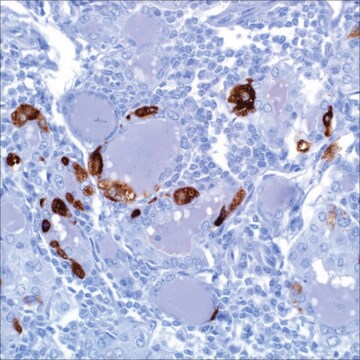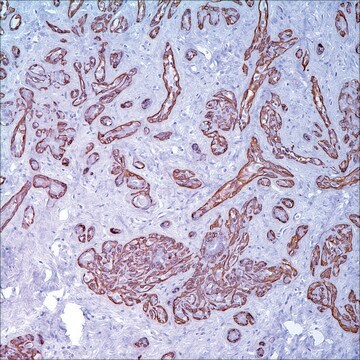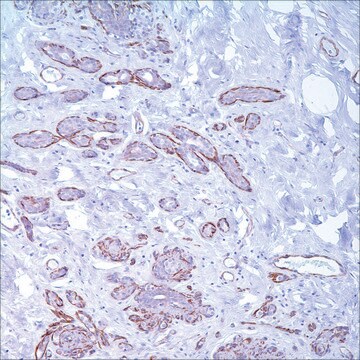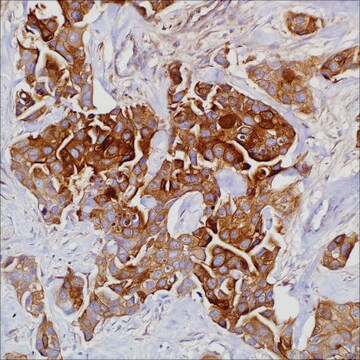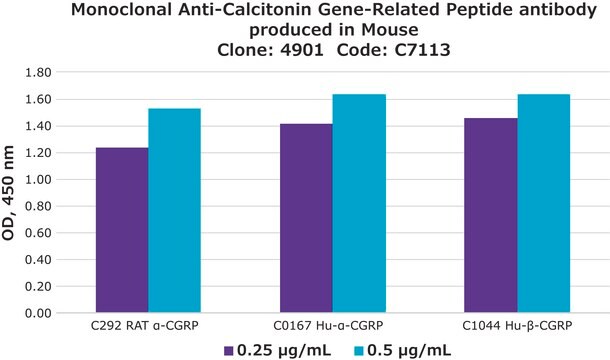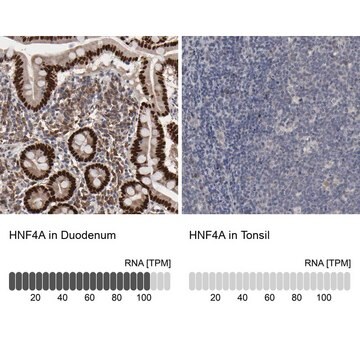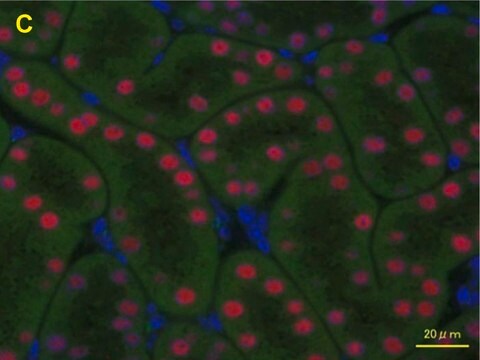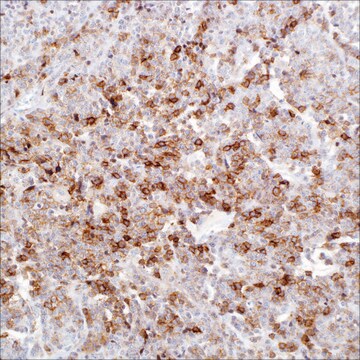229A-1
Calcitonin Rabbit Polyclonal Antibody
About This Item
Prodotti consigliati
Origine biologica
rabbit
Livello qualitativo
100
500
Coniugato
unconjugated
Forma dell’anticorpo
Ig fraction of antiserum
Tipo di anticorpo
primary antibodies
Clone
polyclonal
Descrizione
For In Vitro Diagnostic Use in Select Regions (See Chart)
Stato
buffered aqueous solution
Reattività contro le specie
human
Confezionamento
vial of 0.1 mL concentrate (229A-14)
vial of 0.5 mL concentrate (229A-15)
bottle of 1.0 mL predilute (229A-17)
vial of 1.0 mL concentrate (229A-16)
bottle of 7.0 mL predilute (229A-18)
Produttore/marchio commerciale
Cell Marque®
tecniche
immunohistochemistry (formalin-fixed, paraffin-embedded sections): 1:200-1:1000
Controllo
medullary carcinoma of thyroid
Condizioni di spedizione
wet ice
Temperatura di conservazione
2-8°C
Visualizzazione
cytoplasmic
Categorie correlate
Descrizione generale
Immunohistochemical staining with anti-calcitonin antibodies has proven to be an effective way of demonstrating calcitonin-producing cells in the thyroid. C-cell hyperplasia and medullary thyroid carcinomas stain positive for calcitonin. Studies of calcitonin have resulted in the identification of a wide spectrum of C-cell proliferative abnormalities.
Linkage
Stato fisico
Nota sulla preparazione
Altre note
Note legali
Non trovi il prodotto giusto?
Prova il nostro Motore di ricerca dei prodotti.
Scegli una delle versioni più recenti:
Certificati d'analisi (COA)
Non trovi la versione di tuo interesse?
Se hai bisogno di una versione specifica, puoi cercare il certificato tramite il numero di lotto.
Possiedi già questo prodotto?
I documenti relativi ai prodotti acquistati recentemente sono disponibili nell’Archivio dei documenti.
Il team dei nostri ricercatori vanta grande esperienza in tutte le aree della ricerca quali Life Science, scienza dei materiali, sintesi chimica, cromatografia, discipline analitiche, ecc..
Contatta l'Assistenza Tecnica.